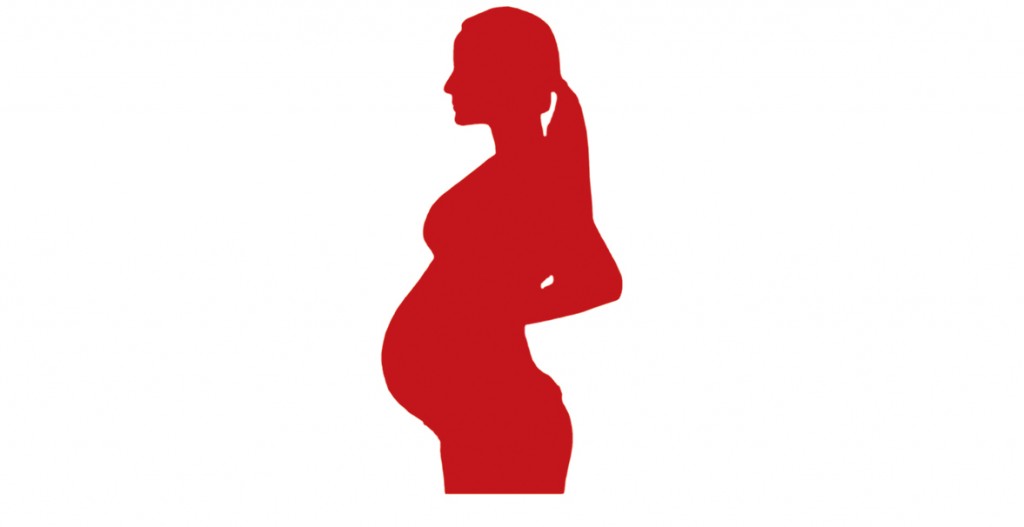Prestige issue 261, April 2015
Diet by Carine Chaccour
For nine months, the pregnant woman’s diet ensures the growth and proper development of the baby. It is not about eating for two, but eating twice as well. Pregnancy should be an opportunity to reconnect with good eating habits. Recommended nutrient intakes vary depending on the activity level of the mother but are approximately between 2000 kcal / d in the first quarter of 2200 kcal / d in the second and third trimester (15 to 20% protein, 30% fat, 55% carbohydrate). Pregnant women should consume daily 4 dairy products (calcium 1000 mg), 5 fruits or vegetables, 2 servings of protein, 15 to 30 ml of various oils, 1.5 liter of water.
© Archives Carine Chaccour
Animal protein that we find in meat, eggs, fish, milk or cheese are better assimilated than vegetable protein found in grains or legumes.
It is best to avoid simple sugars (candies) and focus on carbohydrates in cereals, rice, bread, pulses…
A diet rich in iron (red meat, veal liver, lamb, fish, egg yolk, lentils, spinach, parsley …) is essential for the production of red blood cells of the baby. Most doctors prescribe iron supplements from the 6th month.
It is important to eat foods rich in folate or vitamin B9 (liver, meat, spinach, cabbage, asparagus, walnuts, almonds …) that hold the iron in the body and thus contribute to the formation of blood cells.
Dairy products are recommended for their calcium intake, essential for the formation of the baby’s skeleton. To diversify sources of calcium, it is good to know that these foods all contain the same amount: a portion of emmental 15g, a glass of milk, 1 yogurt, 3-4 tablespoons of cottage cheese, two to three green cabbage plates, 2 bread sticks, 4 oranges …
Vitamin C helps fight against fatigue and increases resistance to infection. It is found in fresh fruits and green vegetables (kiwi, tangerine, lemon, orange, cabbage, leeks …).
Fish is not always popular with moms. Yet eating fish during pregnancy is essential for the proper development of the baby. At the risk of surprising many, fish, like seafood, are the only foods able to cover alone the nutritional needs of pregnant women.
Fish and Seafood simultaneously provide adequate amounts of iodine, selenium, vitamin D, vitamin B12, and especially in omega 3, substances essential for the proper development of the baby. During pregnancy, the needs of the mother increase. Need twice as much iron: tuna contains important amount of iron. Also need two and a half times more omega 3 and there is mathematical: the more fatty fish is, the more it will contain. For those who do not know it yet, omega 3 are nothing but fat. Not just any, as they participate (like iodine matter) to build the baby’s brain that demand astronomical amounts.
Pregnant, you should monitor your diet. In general, avoid eating raw foods. To limit the risk of listeriosis and toxoplasmosis, you must refrain from eating foods that can be dangerous: Soft cheese or raw milk, such as Camembert, bags of grated cheese, products purchased from the cup, raw and smoked fish, meat or raw sausage or cooked. Thoroughly cook all meat and egg preparations. Toxoplasmosis is caused by a parasite found in the earth. To avoid contamination, wash carefully vegetables, fruits and aromatic herbs to remove of them all dirt residu. This rule applies to all fruits. (Using the vinegar).
Extremely high doses of vitamin A may pose risks to the fetus. Therefore, as a precaution, because of the high content of vitamin A from animal livers, it is recommended to pregnant women to limit the consumption of liver (regardless of species) or liver products.
A large tea consumption can lead to anemia because iron of foods is less well absorbed. In addition, tea is an exciting as well as coffee. Herbal teas are not harmless. Chinese ginseng (or Panax) is a stimulant that alters the action of certain drugs, chamomile excites the uterus. You can drink safely from the citrus peel tea, ginger, lemon balm, rose hips, with two to three cups a day.
Alcohol, in any form, should be avoided because it attacks the brain of the fetus. Apart from the very serious Fetal Alcohol Syndrome (1-3 children 1000), which affects children of alcoholic mothers, drink a glass of wine a day, or drinking excessively from time to time favors prematurity and low weight at birth. Then a single slogan: refrain.
Finally, to avoid nausea and bloating, some tips are available: • split meals and avoid snacking untimely in order not to empty the stomach. • Do not skip breakfast • chew food very well • avoid heavy meals, sauces, fats • Limit coffee and tea • Do not lie down immediately after eating.
Ideas that simplify your
life during pregnancy
It is difficult to imagine life with a newborn, especially if motherhood is something new for you. To help you enjoy the first period at home with baby, we offer some ideas that will help you live better when baby arrives, and help you out when your baby will not allow you to cook.
• Stock your freezer with meals for your family. Double or even triple each dish you will cook during your pregnancy. You will be able to freeze much in individual or family portions depending on your location and the number of mouths to feed. Choose comforting recipes that are right for you especially during lactation. In addition to a balanced intake of carbohydrates, proteins and fats, it is particularly important to ensure an adequate intake of calcium, iron and folic acid. Promote vegetable soups full of vitamins.
• Be aware that inadequate protein intake can generate edema not only in the legs. When these edema are localized in the uterus, there is a risk of complications during childbirth. This is why gynecologists discourage pregnant women to follow a vegan diet, among other reasons.
• You should also know that how an expectant mother eats, prepares and conditions the quantity and quality of breast milk produced. All food absorbed by the mother are mobilized by the body which also draws on its reserves of trace elements to produce the milk. No need to eat more during pregnancy, but to eat better.
• Take care to fill your pantry of non-perishable foods that will give you a good boost at a time of food preparations. Do not abuse of spices, they can irritate your intestines.
• Consider purchasing infant formula milk and some baby bottles, even if you plan to breastfeed baby, in case breastfeeding is not possible. This small reserve will help you out time to find an alternative to breastfeeding.
• Take your time to relax, to take small naps. Soon your child will be your priority and will require your time. He will be thrilled to make his entrance into this world in the arms of a serene and loving mom.






